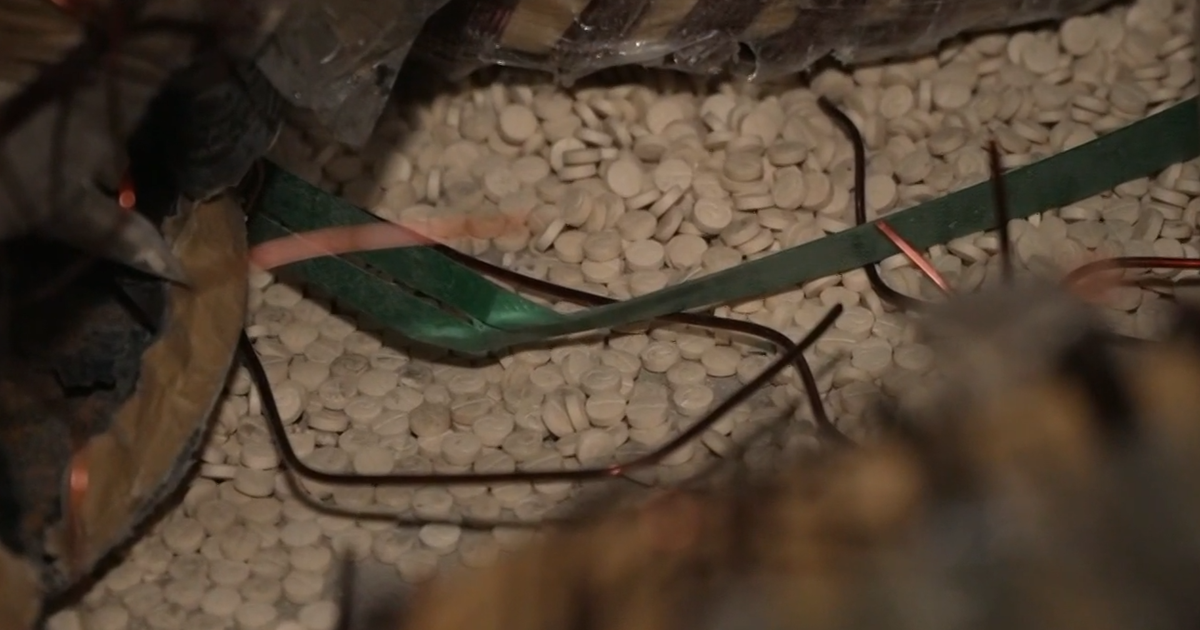CBS News
Endangered tiger cubs make their public debut at zoo in Germany

Two Amur tiger cubs had their first public outing Thursday at Cologne Zoo in Germany, one of several zoos that has sought to help keep up the numbers of the rare big cats.
The cubs – a female named Tochka and a male named Timur – were born in mid-April and now weigh about 13 kilos (28.7 pounds) each. The pair explored their enclosure together with their mother, 13-year-old Katinka.
“They are well fed, alert and awake,” the zoo said in a social media post, noting that the cubs still consume almost exclusively milk, but their interest in meat is “increasing.”
Thomas Banneyer/picture alliance via Getty Images
Amur tigers, also known as Siberian tigers, are found in the far east of Russia and northeastern China and are considered endangered.
“We are very happy and proud of the offspring of this highly threatened species,” zoo curator Alexander Sliwa said in a statement, which said that 240 Amur tigers in zoos are currently part of a European program to help conserve and breed the animals.
Katinka was brought from the zoo in Nuremberg last summer in exchange for Cologne tiger Akina after the existing pairs at both zoos had long failed to produce offspring. She quickly hit it off with 9-year-old Sergan, the cubs’ father, the zoo said.
According to the Amur Tiger Center, Siberian tigers are the “largest living cat on the planet.” Males weigh 400-700 pounds and are 9-12 feet long, including their tail, according to the Denver Zoo. Fewer than 500 Siberian tigers remain in the wild although there are several hundred in captivity.
Earlier this month, eight rare tiger cubs, including Siberian tigers, were born in a Russian zoo.
CBS News
A look inside the U.S.-Mexico border

Watch CBS News
Be the first to know
Get browser notifications for breaking news, live events, and exclusive reporting.
CBS News
New details of notorious Captagon drug trade exposed with collapse of Syria’s Assad regime

Damascus — In a remote corner outside Damascus, a now abandoned potato chip factory has shone a light on one of the ousted Bashar al-Assad regime’s many dark, but open secrets.
A CBS News team gained access to the site, finding a storeroom lined with hydrochloric acid and acetic acid on an industrial scale, which are precursor chemicals needed to make Captagon, one of the most popular street drugs in the Middle East and beyond.
Ahmed Abu Yakin is with Syria’s Hayat Tahrir al-Sham, or HTS, one of the main groups in charge of the country after Assad fled on Dec. 8. Yakin says this massive underground stash of Captagon was found just days after the rebel group’s takeover. The pills stuffed into large stacks of household volt regulator kits ready for shipment.
Often referred to as “poor man’s cocaine,” Captagon is a highly addictive amphetamine-type stimulant.
“We feel bad for the young people who were addicted to it,” Yakin said. “The Assad regime was destroying a generation and couldn’t care less. They only cared about making money.”
And that money is staggering. Analysts estimate the Assad regime raked in $5 billion per year from the trade, dwarfing Syria’s official budget and making it a vital lifeline for the bankrupted state. The drug costs just pennies to make but can sell for up to $20 for a single tablet. The haul seen at the abandoned factory is potentially worth tens of millions of dollars.
For years, neighboring countries accused Assad’s Syria of being the world’s main supplier of the illegal drug. In March 2023, the U.S. Treasury Department sanctioned several Syrians for their alleged involvement in the “dangerous amphetamine”, including two of Assad’s cousins.
“Syria has become a global leader in the production of the highly addictive Captagon, much of which is trafficked through Lebanon,” said Andrea Gacki at the time, who was then-director of the Treasury Department’s Office of Foreign Assets Control. “With our allies, we will hold accountable those who support Bashar al-Assad’s regime with illicit drug revenue and other financial means that enable the regime’s continued repression of the Syrian people.”
Now, his wildly lucrative drug business appears to have been crushed, along with his brutal and corrupt regime. For Yakin, Captagon has no place in Syria’s future.
“We will destroy it all,” Yakin said. “We will eliminate anything that has to do with drugs, and anything that has to do with the criminal Assad regime.”
CBS News
Luigi Mangione’s lawyer says he plans to waive extradition to New York

Watch CBS News
Be the first to know
Get browser notifications for breaking news, live events, and exclusive reporting.









